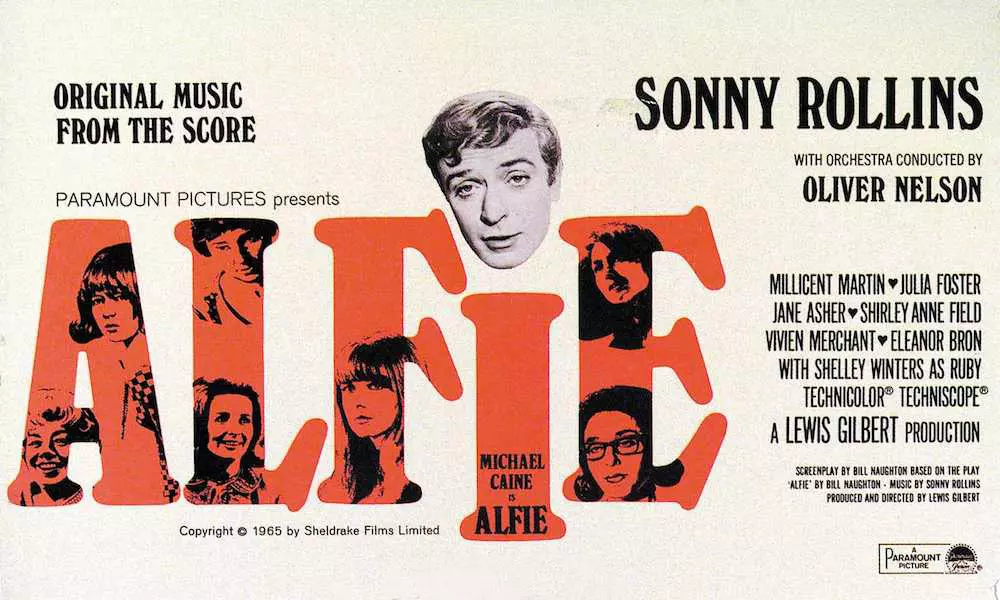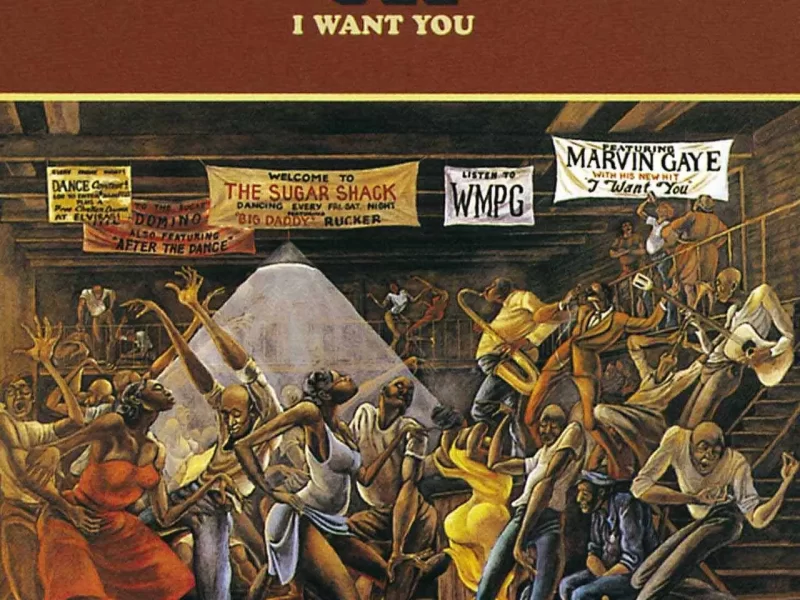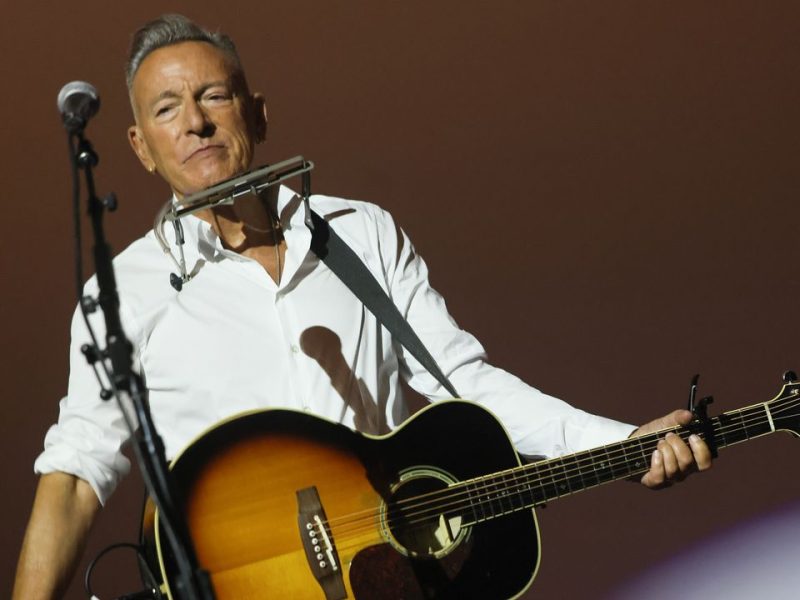“What’s it all about, Alfie?” the opening line from the Hal David and Burt Bacharach song inspired by the 1966 film Alfie sums up some of the confusion and misinformation that surrounds the song, the soundtrack, and the subsequent album released by Sonny Rollins on the Impulse! label in October 1966.
The British movie starring Michael Caine, Millicent Martin, Jane Asher, and Julia Foster premiered in the UK in late March 1966 and was an immediate hit. Director Lewis Gilbert commissioned the eccentric Sonny Rollins to score the movie. There are some 11 minutes of music in the film that were recorded in London over three or four days in late October 1965.
Recorded at Twickenham Film Studios, the soundtrack features saxophonist Sonny Rollins along with some of Britain’s finest jazz musicians, Keith Christie on trombone, Tubby Hayes and Ronnie Scott on tenor sax, pianist and arranger Stan Tracey, Dave Goldberg plays guitar and Phil Seaman on drums. There is some confusion as to who plays bass, with various sources saying it’s either Kenny Napper, Rick Laird, or Johnny Hawksworth.
It seems that Rick Laird was definitely there for some of the sessions as he later said, “When Sonny Rollins called me from New York and asked me to do it, I was really thrilled,” Laird recalls. “It was really interesting, because we had no music to work from. We just went to the studio, and while they ran the film for us, we improvised to the scenes taking place on the screen. We had a few basic themes, but for the most part, it was all spontaneous.” It is possible that the other two may have played on one or other of the days spent recording.
There is no ‘official’ recording of this soundtrack, which has always been credited to Sonny Rollins as the sole writer on the project. However, the song “Little Malcolm Loves His Dad” is believed to have been written by Tracey.
Three months after recording the music heard in the film, Rollins went into Rudy Van Gelder’s Englewood Cliffs, New Jersey, studio on January 26, 1966 to record a full album of music utilizing what he had written for the movie and afterward expanded upon.
Produced by Bob Thiele, the Alfie ‘soundtrack’ album was arranged by the supremely talented Oliver Nelson and features some fine performances Rollins, Phil Woods on Alto Saxophone, Bob Ashton on Tenor Saxophone, Danny Bank, Baritone Saxophone, with trombonists, J.J. Johnson and Jimmy Cleveland, Walter Booker on bass, Frankie Dunlop on drums, pianist, Roger Kellaway and the great Kenny Burrell on guitar – his playing on the opening cut “Alfie’s Theme” is sublime.
The running time of the album is a little over 30 minutes, but it is pure brilliance every second of the way. The album was released on Impulse!, and reached No.17 on the Billboard R&B chart, while in the UK, the album was originally released with the title Sonny Plays Alfie on the HMV label before resurfacing in 1972 as Alfie on Impulse!
The movie was not released in America until August 1966. Between its British premiere and US premiere, Howard Koch, the head of Paramount Pictures, asked Bacharach and David to come up with a song to feature over the end credits of the movie, which they duly did.
Bacharach was told that Lewis Gilbert wanted Cilla Black to record the song, and the songwriter sent the demo he had cut in New York to London. Initially, Cilla, was reluctant to record it as she thought the name “Alfie” seemed like something you would call a dog. Eventually, she relented, but only on the condition that Bacharach fly to London to play piano on the session and write the arrangement.
At Abbey Road, producer George Martin assembled a forty-eight piece orchestra, and Cilla’s manager Brian Epstein decided to film the whole thing. Bacharach pushed Cilla to her limits, having her do 29 takes of the vocal, despite Martin insisting that she had nailed it on the fourth take. The song was a big hit in the UK, making No.9 on the singles chart and a more modest No.95 in America.
The lack of success in the US was partly because Paramount had Cher cut the song at Gold Star Recording in Los Angeles, with Sonny Bono as producer, who decided to create a Phil Spectorish Wall of Sound type production. The Cher version, despite being the follow-up to “Bang Bang (My Baby Shot Me Down),” a No.2 record, could only reach No.37.
Great as the Bacharach song is, you should also head to Sonny Rollins’ version to hear one of the great jazz movie soundtracks that has ever been recorded.



